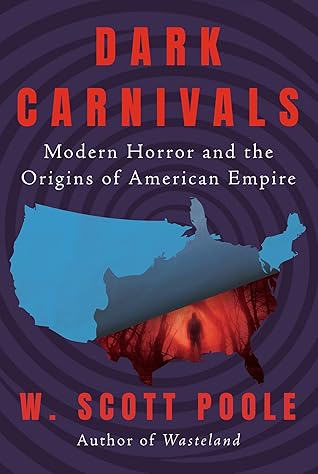More on this book
Kindle Notes & Highlights
Started reading
December 29, 2022
Rose meant that while horror films proffered suspense, in reality every fan knows the accepted “rules” of the genre. He argued that, in general, horror movies are actually “one of the safest spaces in cinema” since a fan’s knowledge of what to expect provides them with a “flashlight” for the darkest corners a director might lead them to.
What directors, authors, comic artists, and even game designers want is to hit the audience with a cultural roundhouse. There’s no way to do that effectively without pushing political buttons to overstimulate the most delicate nerve endings of personal belief, ideology, patriotism, gender roles, and unexamined hatreds.
Best-selling novelist Paul Tremblay writes that horror really works only when it “push[es] and prod[s] at moral boundaries” and forces its audience to “confront personal and societal taboos.” In fact, he suggests that horror films need a “progressive” vision to really pull us out to sea on a dark tide.
Writer and director Aislinn Clarke doesn’t use the phrase elevated horror. But she has suggested that a difference does exist between something being “scary” and true, lingering horror. The creation of horror depends on upending convention and, she suggests, should “punch up” against those in power rather than “merely making monsters of those at the bottom.
Most American citizens do not think of themselves as living in an empire but instead in a great nation that mostly does good things. The occasional failing, like the toppling of a government in a violent coup or the murder of civilians in an air strike, is “not who we are.”
Horror lets us know that how we expected the world to act has been indefinitely cancelled.
Colonies like the Carolina settlement included the right to own African people in their charters. Early in colonial America, some poor whites worked without wages as indentured servants. The practice died out, however, and indentured servants eventually earned their freedom. Colonial law regarded African men and women as chattel, literally “movable property” like a cow or a wagon.
After the beginning of the Great Depression in ’29, President Herbert Hoover effectively rescinded this plan. Unemployed and deeply embittered, twenty-five thousand veterans marched on Washington with over ten thousand men and their families setting up Hooverville in Anacostia Flat, a muddy river bottom of the Potomac.
The Senate declined to pass a bill paying out the bonus, and Hoover sent regular army troops, tanks, and machine guns to clear the tent city. The aggressive move resulted in one hundred injuries and wounds. Some veterans attempted to set up camp again, and this time Washington police fired on them, killing William Hushka and Eric Carlson. Both are buried in Arlington National Cemetery. Much-reduced bonus payments would eventually come in 1936.
Isolationism has largely been a myth that really means “the United States will make unilateral decisions rather than forming meaningful alliances.”
Don’t worry about the thing on the stairs. If you don’t want to be “woke,” it’s terribly cozy to sleep on peacefully while vast tracts of American horror culture allow you to float in Amity’s warm and woozy dream.
Conspiracy theories are, like horror, tales of how the worst thing you imagine is true. “You think things are bad? Well, let me tell you, buddy, you don’t know the half of it.”
The Greenbaum effect is the tendency of Americans to choose outlandish and unsupported conspiracy theories while ignoring the conspiratorial actions of political and economic elites that are backed by evidence.


